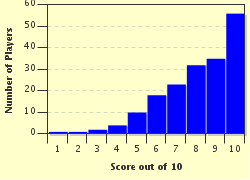Quiz Answer Key and Fun Facts
1. Which two-part J.D. Salinger story began with the line: "Though brilliantly sunny, Saturday morning was overcoat weather again, not just topcoat weather, as it had been all week and as everyone hoped it would stay for the big weekend - the weekend of the Yale game"?
2. "The terror, which would not end for another twenty-eight years - if it ever did end - began, so far as I know or can tell, with a boat made from a sheet of newspaper floating down a gutter swollen with rain" was the first line of which 1986 Stephen King novel?
3. Which Philip Marlowe novel began with the line: "It was about eleven o'clock in the morning, mid October, with the sun not shining and a look of hard wet rain in the clearness of the foothills"?
4. "Late in the afternoon of a chilly day in February, two gentlemen were sitting alone over their wine, in a well-furnished dining parlor, in the town of P----, in Kentucky," was the beginning line of which pre American Civil War novel subtitled "Life Among the Lowly"?
5. Originally titled "The Drunkard", which Russian novel began with the line: "On an exceptionally hot evening early in July a young man came out of the garret in which he lodged in S. Place and walked slowly, as though in hesitation, towards K. bridge"?
6. Which Depression-era novel started with the line: "To the red country and part of the gray country of Oklahoma, the last rains came gently, and they did not cut the scarred earth"?
7. "The towers of Zenith aspired above the morning mist; austere towers of steel and cement and limestone, sturdy as cliffs and delicate as silver rods" was the first line of which satirical Sinclair Lewis novel?
8. Which 1895 Stephen Crane novel began with the line: "The cold passed reluctantly from the earth, and the retiring fogs revealed an army stretched out on the hills, resting"?
9. The opening to this short story portrayed a dreary day: "During the whole of a dull, dark, and soundless day in the autumn of the year, when the clouds hung oppressively low in the heavens, I had been passing alone, on horseback, through a singularly dreary tract of country; and at length found myself, as the shades of the evening drew on, within view of the melancholy..." The last few words of the quote are omitted as they include part of the title of which Edgar Allan Poe tale?
10. Which 1954 dystopian work by Richard Matheson started with the line: "On those cloudy days, Robert Neville was never sure when sunset came, and sometimes they were in the streets before he could get back"?
Source: Author
PDAZ
This quiz was reviewed by FunTrivia editor
LadyCaitriona before going online.
Any errors found in FunTrivia content are routinely corrected through our feedback system.


